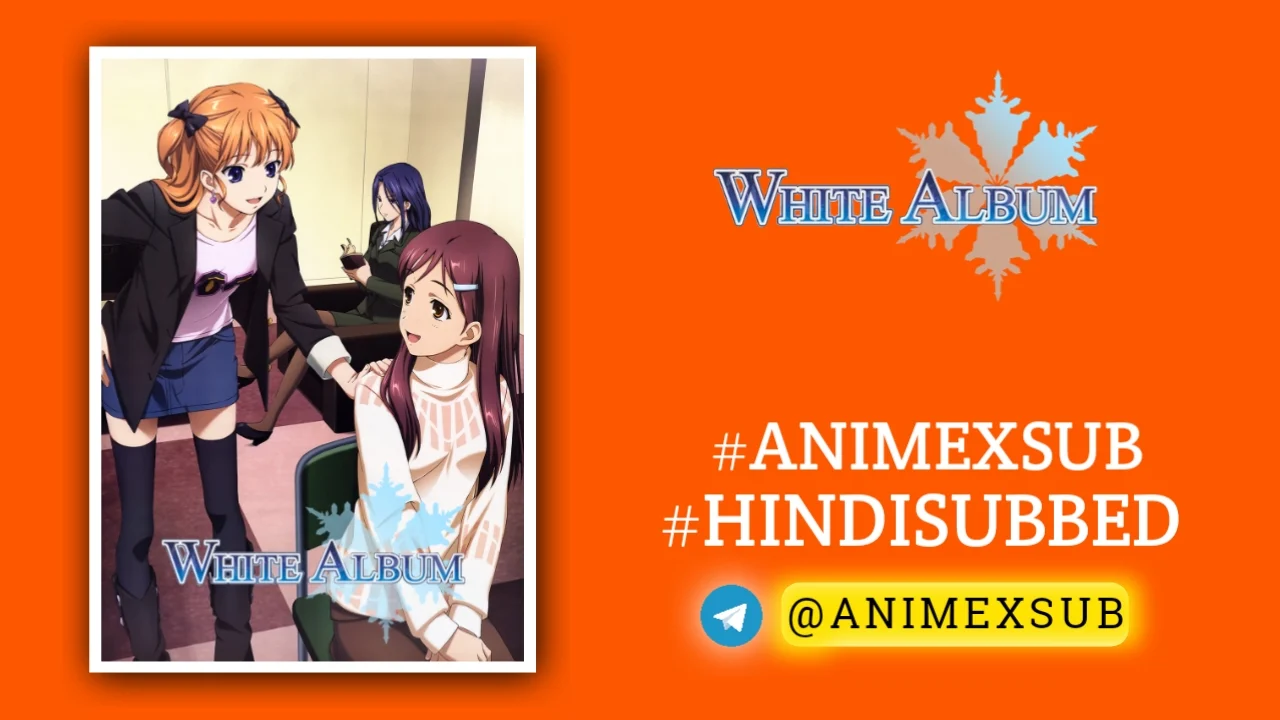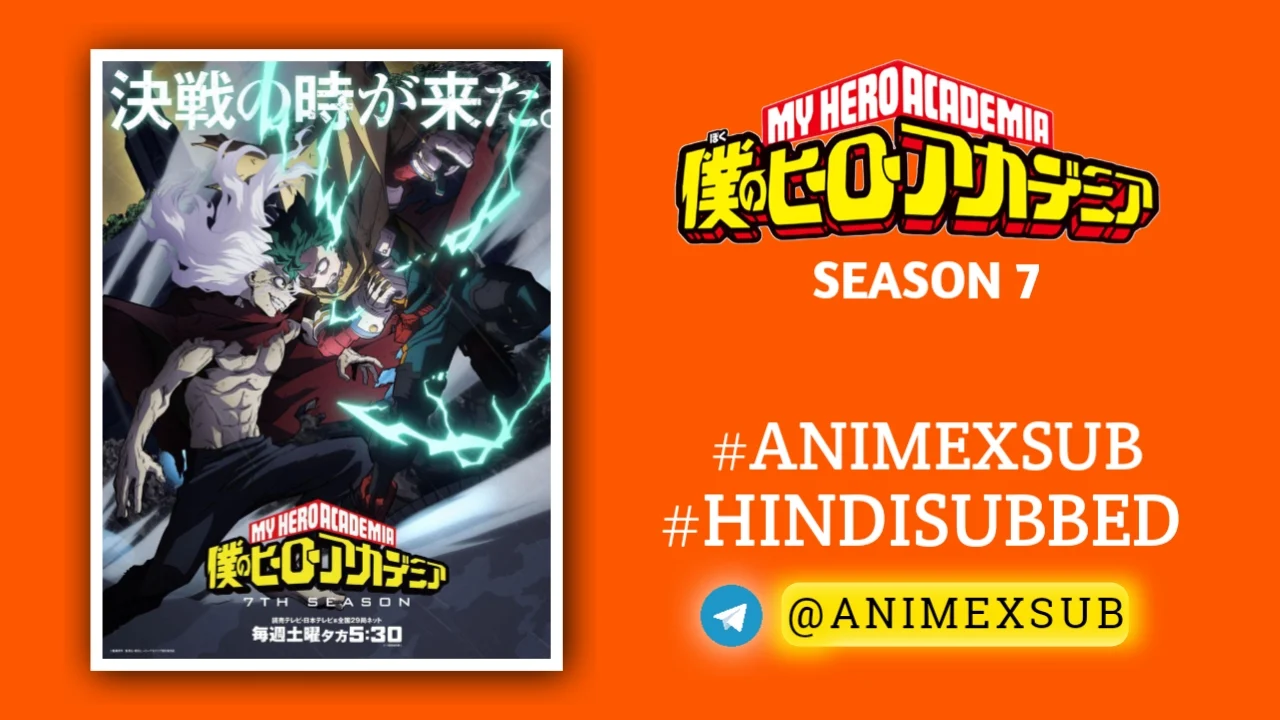
My Wife is the Student Council President Season 2 Hindi Subbed [12/12] | Okusama ga Seitokaichou!+! Hindi Sub

Okusama ga Seitokaichou!
My Wife is the Student Council PresidentSynopsis
The story begins with Izumi Hayato running to be student body president. But when a beautiful girl swings in promising the liberalization of love while flinging condoms into the audience, he ends up losing to her and becoming the vice president. At the student council meeting, the newly-elected president invites herself over to Izumi's house, where she promptly announces she is to become Izumi's wife thanks to an agreement – facilitated by alcohol – made between their parents when they were only 3.
Watch Trailer
Characters
My Wife Is the Student Council President Season 2: A Deeper Dive into Chaos and Chemistry
My Wife Is the Student Council President Season 2 (also known as Okusama ga Seito Kaichō!+) builds on the cheeky premise of its first season, delivering a blend of ecchi comedy, heartfelt moments, and surprising character depth that sets it apart in the crowded anime landscape. Airing from October to December 2016, this 12-episode continuation, produced by Studio Seven, refines the balance of risqué humor and emotional resonance, making it a standout for fans of the genre and those seeking more than just fan service. Below is an in-depth, non-promotional exploration of what makes this season unique, informed by its narrative evolution, character dynamics, and cultural context, without recycling tired tropes or promotional fluff.
Narrative Evolution: More Than Just Ecchi Antics
Season 2 picks up where the first left off, following Hayato Izumi, a high school freshman reluctantly thrust into a fake marriage with Ui Wakana, the exuberant student council president. Their arrangement, born from a drunken parental pact, remains the comedic core, but this season leans harder into emotional stakes and character-driven subplots. Unlike many ecchi series that stagnate in repetitive gags, Season 2 introduces new characters and conflicts that challenge the status quo. The photography club president, Honoka Saijō, and disciplinary committee head, Rin Misumi, stir up trouble, adding layers of jealousy, rivalry, and unexpected vulnerability to the mix.
The narrative shines in its ability to weave school life chaos—think festivals, club drama, and student council shenanigans—with quiet moments of introspection. For instance, episodes like “The Vice President’s Long Night” (S2E5, rated 7.9/10 on IMDb) explore Hayato’s struggle to balance his growing feelings for Ui with his sense of duty, while “The Photography Club President’s Hidden Desire” (S2E9) reveals Honoka’s motivations beyond mere voyeurism. These moments elevate the series beyond its ecchi roots, offering a nuanced look at relationships under pressure. The season’s pacing, though occasionally rushed, keeps episodes brisk at roughly 8 minutes each, ensuring no scene overstays its welcome.
Character Dynamics: Growth Amidst the Giggles
What sets Season 2 apart is its commitment to character development, a rarity in short-form ecchi anime. Hayato (voiced by Kazuyuki Okitsu) evolves from a flustered everyman into someone grappling with genuine affection, his internal conflict palpable as Ui’s antics push his boundaries. Ui (Ayana Taketatsu) remains a whirlwind of energy, but her moments of insecurity—particularly in “The President’s Efforts and Winter’s Temptations” (S2E8)—reveal a girl navigating love and leadership with equal parts bravado and doubt. Their chemistry feels organic, avoiding the forced tropes of lesser rom-coms.
Supporting characters steal the show at times. Rin Misumi’s strict demeanor cracks under her own romantic confusion, especially in “The Disciplinary Committee Head’s Awakening” (S2E4), where her interactions with Hayato hint at a deeper emotional arc. Honoka Saijō, meanwhile, adds a mischievous edge, her photography club antics (like secretly snapping compromising photos) injecting tension and humor. The ensemble cast, including treasurer Karen Fujisaki and Ayane Niikura, ensures no episode feels repetitive, as each character brings a distinct flavor to the narrative. This dynamic interplay makes the season feel like a living, breathing school ecosystem rather than a one-note gag reel.
Thematic Depth: Balancing Humor and Heart
While the series doesn’t shy away from its ecchi roots—expect plenty of suggestive moments and classic “accidental” misunderstandings—it subtly critiques the performative nature of relationships. Ui’s bold campaign for “campus romance liberalization” (complete with condom-flinging) is played for laughs but also questions societal norms around young love and public displays of affection. The season explores how external pressures, like school gossip or parental expectations, shape personal connections, a theme that resonates universally.
The show’s humor lands because it’s self-aware, poking fun at its own absurdity while grounding it in relatable stakes. For example, “A Holy Night with the President and All the Rest” (S2E12) uses a holiday party to juxtapose slapstick (Hayato’s crossdressing reveal) with tender moments of camaraderie, tying the season’s themes together. This balance keeps the series accessible to both ecchi enthusiasts and viewers seeking emotional payoff.
Visual and Audio Craft: Subtle Excellence
Studio Seven’s animation is crisp for a short-form series, with vibrant character designs that pop during comedic sequences and soften in quieter scenes. The art style enhances the show’s tone, using exaggerated expressions for humor and delicate shading for emotional beats. The soundtrack, while not groundbreaking, complements the mood with upbeat tracks and softer melodies during reflective moments. Voice performances, particularly Taketatsu’s infectious energy as Ui and Okitsu’s exasperated delivery as Hayato, elevate the dialogue, making even the most outrageous scenarios feel authentic.
Cultural Context and Reception
Based on Yumi Nakata’s manga, serialized in Ichijinsha’s Comic Rex (2011–2018), Season 2 reflects the era’s fascination with blending ecchi with rom-com sincerity, a trend seen in contemporaries like Prison School. Its streaming availability on Crunchyroll (both censored and uncensored versions) made it accessible globally, contributing to its cult following. IMDb ratings for episodes range from 6.0 to 7.9, reflecting varied reception but consistent appreciation for standout episodes like “The Vice President’s Long Night.” Fans on platforms like Anime-Planet praise its humor and character growth, though some critique its reliance on ecchi tropes—a fair point, but one mitigated by the season’s emotional depth.
Why It Stands Out
Season 2 transcends its genre by treating its characters as more than punchlines. It’s not perfect—some plotlines, like Karen’s panty-less subplot in S2E11, feel like fan service for its own sake—but the show’s willingness to explore vulnerability and growth makes it a cut above. It’s a rare ecchi anime that respects its audience’s intelligence, offering laughs, heart, and a surprisingly poignant look at young love in a chaotic high school world.
Sources: Information drawn from Anime-Planet, IMDb, and ComingSoon.net for episode details and reception.
Support Our Anime Community!
Love watching the latest anime? Help us keep uploading new episodes by join telegram channel ❤️
Join Now!















